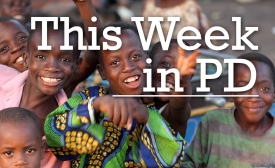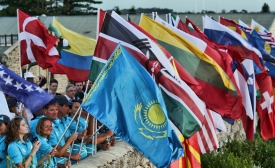public opinion

News stories this week highlight public diplomacy activities out of Africa.
After conducting a six-year study, David Vine, professor of anthropology at American University, has published a new book titled Base Nation: How U.S. Military Bases Abroad Harm America and the World in which he argues that military bases abroad are undermining U.S. national security and American soft power abroad.
Foreign Policy has plotted the most common Chinese-language Baidu query for each European nation onto the map below. This provides a glimpse into how Chinese netizens view the peoples and countries of Europe — a continent whose industrialization once both humiliated China and inspired its admiration, and that has loomed large in the country’s imagination ever since.

PD News headlines showcased the role public opinion can play in international politics.

This article illustrates how states and state-sponsored actors are utilizing six pathways of connection to communicate and engage with foreign publics, with examples that include President Obama’s visit to Brazil, a Chinese cultural exhibition in the United States and the European Union’s Youth in Action program.
To be sure, thanks to an extraordinarily active and well-funded foreign information campaign Russia has been able to undermine some of the West's narrative. But what it has demonstrated is that it is one thing to throw sand into the eyes and into the gears of the international system. It is quite another to actually accrue soft power, to get people to respect, like and want to support and emulate you.
Andrijano Dzeladin is using TV to break down prejudice and promote the true face of the romani people. [...] His aim is to show the culture and traditions of his people, breaking down prejudices and promoting the true face of the Romas, who are often at the center of controversies and critics.
It’s not an abstract question. The Obama administration’s decision to restore diplomatic relations with Cuba is banked on the belief that the United States can do more to encourage change on the island through a soft-power strategy of “engagement.” And a big part of that, in Cuba, means figuring out how to change the profile of U.S. diplomacy — and throw a good party again.







